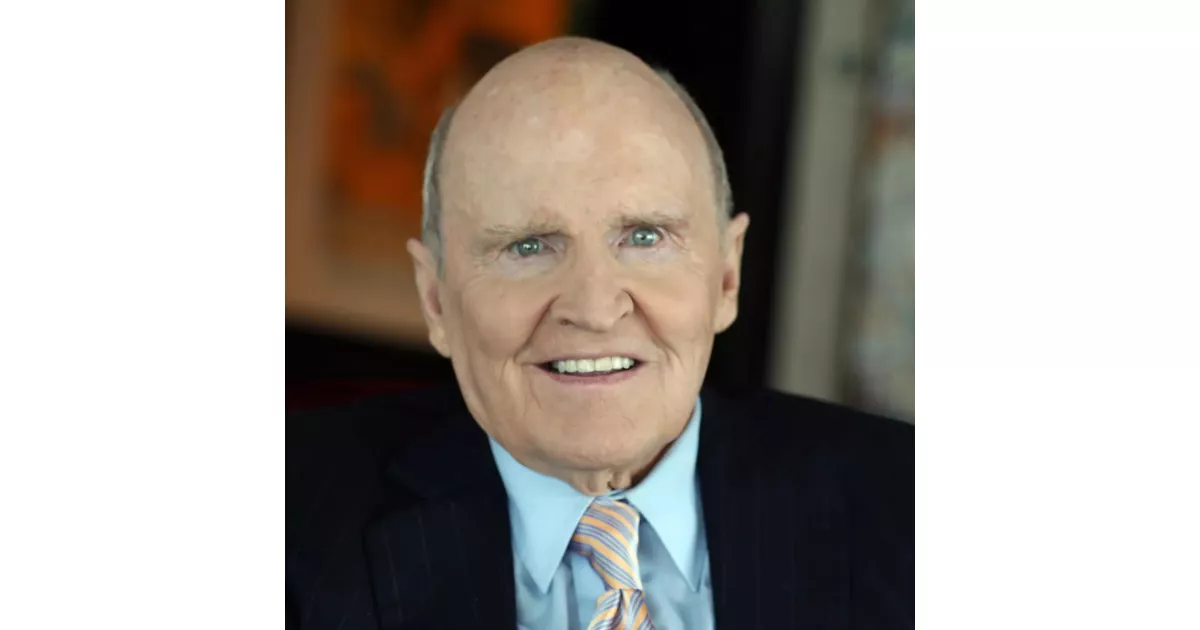How Jack Welch built a successful career. Explore key moments that defined the journey.
Jack Welch, an influential American business executive, led General Electric (GE) as Chairman and CEO from 1981 to 2001. Known for his aggressive management style and focus on shareholder value, he implemented policies like "Rank and Yank" (performance-based employee evaluations) and Six Sigma to improve efficiency and quality. Welch significantly restructured GE, expanding its financial services and media divisions. He emphasized globalization and acquisitions, transforming GE into a highly profitable conglomerate. While lauded for his business acumen and leadership, he faced criticism for his management tactics, which sometimes resulted in large-scale layoffs.
1960: Welch joined General Electric
In 1960, Welch joined General Electric (GE) as a junior chemical engineer in Pittsfield, Massachusetts.
1961: Welch planned to quit GE
In 1961, Welch considered leaving his position as a junior engineer at General Electric (GE) due to dissatisfaction with his raise and the bureaucracy within the company.
1963: Factory Explosion Under Welch's Management
In 1963, an explosion occurred at the factory managed by Welch, and he was almost terminated from his position.
1968: Welch became VP and head of GE's plastics division
In 1968, Welch was promoted to vice president and head of General Electric's (GE) plastics division.
1971: Welch became VP of GE's metallurgical and chemical divisions
In 1971, Welch also became the vice president of General Electric's (GE) metallurgical and chemical divisions.
1973: Welch was named Group Executive
In 1973, Welch was named group executive, managing chemical, metallurgical, medical systems, appliance components, and electronic components businesses.
1977: Welch was named Senior Vice President
In 1977, Welch was named senior vice president and head of Consumer Products and Services Division.
1979: Welch became the Vice Chairman of GE
In 1979, Welch became the vice chairman of General Electric (GE).
1980: GE Employee Count
At the end of 1980, General Electric had 411,000 employees.
1980: GE Recorded Revenues
In 1980, the year before Welch became CEO, General Electric recorded revenues of roughly $26.8 billion.
1981: Welch became CEO of GE
In 1981, Welch assumed the role of Chairman and CEO of General Electric (GE).
1981: Welch became GE's youngest chairman and CEO
In 1981, Welch became General Electric's (GE) youngest chairman and CEO, succeeding Reginald H. Jones.
1981: "Growing fast in a slow-growth economy" speech
In 1981, Welch delivered a speech in New York City titled "Growing fast in a slow-growth economy", which is recognized as the start of the shareholder-value movement.
1982: Welch dismantled management at GE
By 1982, Welch had dismantled much of the earlier management put together by Jones with aggressive simplification and consolidation at General Electric (GE).
1985: GE Employee Count
At the end of 1985, General Electric had 299,000 employees.
1986: GE acquired the RCA Corporation
In 1986, General Electric (GE) acquired the RCA Corporation for $6.28 billion. Following the acquisition, GE liquidated or sold off nearly all of RCA's divisions and assets except NBC.
1991: Succession Planning Speech
In 1991, Welch gave a speech noting that choosing his successor was the most important decision he would make.
1991: Chairman of The Business Council
In 1991, Welch served as Chairman of The Business Council.
1992: Chairman of The Business Council
In 1992, Welch served as Chairman of The Business Council.
1995: Welch adopted Motorola's Six Sigma quality program
In late 1995, Welch adopted Motorola's Six Sigma quality program for General Electric.
1996: Retention package agreement
In 1996, Welch and GE agreed to a "retention package" worth $2.5 million, promising continued access after Welch's retirement to benefits he had received as CEO.
1999: Welch named "Manager of the Century"
In 1999, Welch was named "Manager of the Century" by Fortune magazine.
2000: GE Recorded Revenues
In 2000, the year before Welch left, General Electric's revenues were nearly $130 billion.
2001: Welch retired from GE
In 2001, Welch retired as CEO of General Electric.
2002: Suzy Wetlaufer Resigns from Harvard Business Review
In early 2002, Suzy Wetlaufer was forced to resign from her position as editor-in-chief of the Harvard Business Review after admitting to an affair with Jack Welch while preparing an interview with him for the magazine. This occurred after Welch's wife at the time, Jane Beasley, informed the Review about the affair.
2005: Co-authored Winning
In 2005, Suzy Wetlaufer co-authored Jack Welch's book "Winning" as Suzy Welch.
2005: Publication of "Winning"
In 2005, Welch published "Winning", a book about management co-written with Suzy Welch, which reached No. 1 on The Wall Street Journal bestseller list, and appeared on New York Times Best Seller list.
September 2006: Welch taught at MIT Sloan School of Management
Since September 2006, Welch had been teaching a class at the MIT Sloan School of Management to a hand-picked group of 30 MBA students with a demonstrated career interest in leadership.
2008: Financial Times Interview on Global Financial Crisis
During a Financial Times interview on the global financial crisis of 2008-2009, Jack Welch stated that "shareholder value is the dumbest idea in the world," emphasizing the importance of employees, customers, and products.
November 2009: End of BusinessWeek column
In November 2009, Welch and his wife, Suzy, stopped writing their column for BusinessWeek, which had been syndicated by The New York Times for four years.
2009: Financial Times Interview on Global Financial Crisis
During a Financial Times interview on the global financial crisis of 2008-2009, Jack Welch stated that "shareholder value is the dumbest idea in the world," emphasizing the importance of employees, customers, and products.
2009: Welch founded the Jack Welch Management Institute
In 2009, Welch founded the Jack Welch Management Institute (JWMI), which is a program at Chancellor University that offered an online executive Master of Business Administration.
2011: JWMI Acquired by Strayer University
In 2011, the Jack Welch Management Institute was acquired by Strayer University.
January 2012: Started Writing Column for Reuters and Fortune
In January 2012, Jack Welch and Suzy Welch started writing a biweekly column for Reuters and Fortune.
October 9, 2012: Departure from Reuters and Fortune
On October 9, 2012, Jack Welch and Suzy Welch both left their biweekly column for Reuters and Fortune after an article critical of Welch and his GE career was published by Fortune.
2012: Resignation from business associations
In 2012, Welch and his third wife, Suzy Welch, quit their business associations with Fortune magazine and Reuters news service after Fortune published an article which criticized Welch's tweet and elucidated the 100,000 jobs GE lost during his tenure as CEO.
2015: Harvard Business Review Article on Breaking Down Silos
In a 2015 article in Harvard Business Review, business consultant Ron Ashkenas argues that Jack Welch's approach to breaking down silos still works, citing examples of engineering companies.
December 2016: Welch joined business forum
In December 2016, Welch joined a business forum assembled by then president-elect Donald Trump to provide strategic and policy advice on economic issues.
2018: H. Lawrence Culp Jr. Named CEO of GE
In 2018, H. Lawrence Culp Jr. was named the fourth CEO of General Electric since Jack Welch's departure.
2025: Salary equivalent in 2025 dollars
In 1960, Welch started working in General Electric with a salary of $10,500, which would be equivalent to approximately $112,000 in 2025 dollars.
Mentioned in this timeline

Donald John Trump is an American politician media personality and...
California is a U S state on the Pacific Coast...
The National Broadcasting Company NBC is a major American commercial...

Inflation in economics signifies an increase in the average price...

Los Angeles is the most populous city in California and...

Books are a means of storing information as text or...
Trending
3 months ago Poland accuses Russia of railway sabotage; investigation points towards Russian involvement.

3 months ago Nvidia's Financial Results, Stock Reversal, and Wall Street Disagreement: A Summary

9 months ago Tesla Board Initiated CEO Search to Replace Elon Musk Amidst Leadership Concerns.

Terrell Lamar Davis a former running back for the Denver Broncos - is renowned as one of the NFL's all-time...

Michael Lee McDaniel is the head coach of the Miami Dolphins He started his NFL career as an intern for...

8 months ago Cam Akers Joins New Orleans Saints After Minicamp Tryout: A New Opportunity
Popular

Kid Rock born Robert James Ritchie is an American musician...
The Winter Olympic Games a major international multi-sport event held...

Melania Trump a Slovenian-American former model has served as First...

XXXTentacion born Jahseh Dwayne Ricardo Onfroy was a controversial yet...

Barack Obama the th U S President - was the...

Billie Eilish is a prominent American singer-songwriter who rose to...

